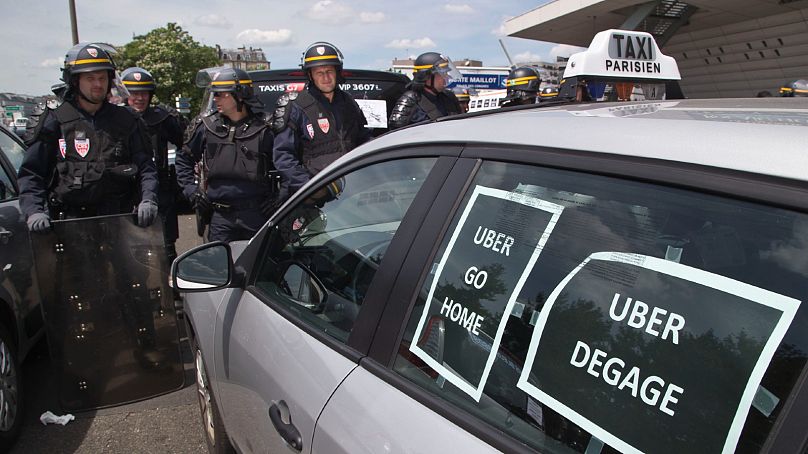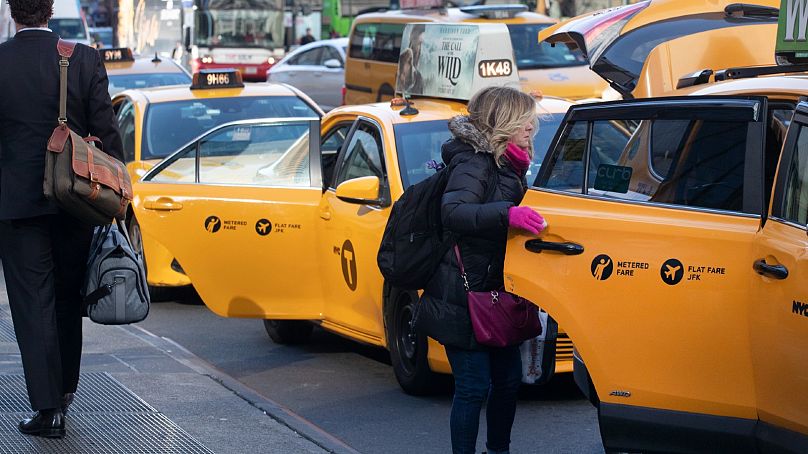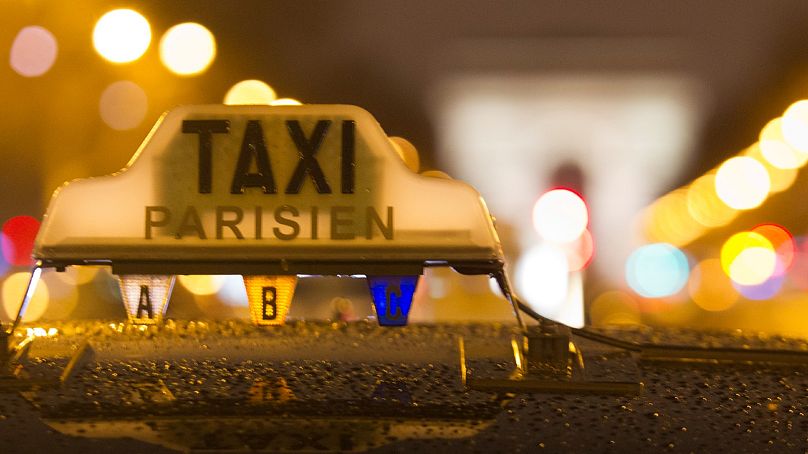Paris could once again be a tough nut to crack for the ride-hailing giant.
Uber was born out of the frustration of two US entrepreneurs trying to catch a cab in Paris.
Fast-forward more than a decade later and the ride-hailing giant is making waves once again in the French capital – this time wooing the taxi drivers whose service it once bemoaned.
"We are looking at integrating taxis into the Uber application in Paris,” Uber told Euronews Next.
“We are willing to co-construct with the sector a product that meets taxis’ expectations and Parisians’ mobility needs".
The company is not just doing so in Paris. In recent months, Uber has been striking deals with taxi companies around the world to enlist them on its platform as it seeks to widen its pool of drivers and reduce waiting times for users.
Deals are already in place in Germany, Austria, Spain, Greece, Italy, Turkey, and more recently in Brussels.
It’s now taking on Paris, which may well be the hardest European city to conquer.
“Nobody can forget what happened in 2014-2015, and the monumental blow that UberPop dealt to the French taxi market,” Mouhssine Berrada, who leads the Paris branch of France’s National Taxi Union, told Euronews Next.
UberPop was a service that relied on drivers without commercial licences – essentially anyone with a car looking to earn extra income by picking up passengers through the app – that was attacked from all sides by taxi associations and blocked by several European countries.
In France, the service was eventually scrapped in 2015, but the national rules covering the way Uber operates, particularly regarding how drivers acquire a professional driver’s licence, were eased.
A key grievance taxis have against private hire services is that their drivers do not have to purchase or rent a costly licence to start picking up clients, and that this amounts to unfair competition.
Berrada said one more of his colleagues had recently committed suicide over the debt she had racked up to repay her €240,000 taxi licence.
“I think Uber did not behave well and a big part of the fleet hasn’t forgotten that,” Berrada said. “The wound hasn’t healed yet”.
Uber is well aware of the hard feelings.
A company spokesperson said while these are understandable, over 200 taxi drivers have already joined the platform in Paris, and globally tens of thousands have.
The company is facing a shortage of drivers in a number of cities around the world to absorb a post-pandemic jump in demand for rides – as locals return to a more social life and international tourists make a comeback.
The company argues that adding taxi drivers to its app will create a bigger pool of drivers and reduce waiting times, while taxi drivers would have more opportunities to find clients when they aren’t picking up much business at taxi ranks or being hailed from the street.
Uber has even set out a target to get every taxi driver around the world on the platform by 2025.
It’s been scoring big wins. In March, Uber announced it would list New York City's iconic yellow cabs. The app has also integrated taxis in Colombia, South Korea and Hong Kong.
"When we look at the next five years, we just don't see a world in which taxis and Uber exist separately. There's too much to gain for both sides," Andrew Macdonald, Uber's senior vice president of mobility, said at the time.
In May, when the platform struck a deal with IT Taxi, the largest taxi dispatch service in Italy, Uber CEO Dara Khosrowshahi called it “a truly historic deal,” adding: “We strongly believe taxis and Uber are better together”.
Uber’s sweeteners
But in France, many taxi drivers are suspicious of Uber’s plans – and are not thrilled at the idea of Uber taking a slice of their earnings.
Berrada, the taxi union leader, said Uber offered taxi drivers “one to two months” free of charge to join its platform before a commission kicks in on the rides booked through the app.
Uber wouldn’t comment on specific sweeteners in its deals and said its financial models vary country by country. In some places, it’s a flat fee of around €2.50 that Uber charges the taxi driver for each ride booked through the app.
In others, Uber takes a variable commission. In Spain, where Uber also recently started listing taxi drivers, the platform takes a 12 per cent commission on each ride – which is lower than the 20-25 per cent commission an UberX driver pays.
Treading carefully
The company stresses it never imposes any exclusivity on those looking to join the platform, and that drivers remain entirely free to be listed on other ride-hailing or dispatching apps.
It emphasises it offers sick leave and other benefits but also guarantees drivers will always remain independent contractors and enjoy their flexibility.
“What we hear from taxi drivers now working on the Uber platform is it’s beneficial – they access more customers, better utilise their time. They still have exclusive access to rank and hail, but they have an additional source of revenue,” said the company spokesperson.
So far, back in France, Uber has only approached taxi drivers in the capital.
It’s a key market to court. The 20,000 taxis in Paris account for a third of the country’s total fleet.
“If they manage to conquer Paris, they’ll have conquered France,” Berrada said.














